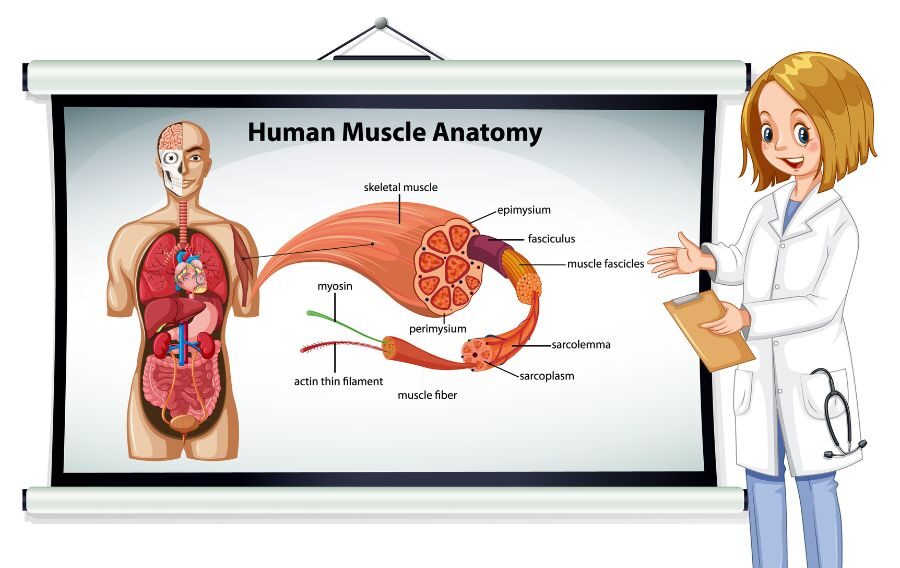Mastering IGCSE Biology: Essential Notes for Success
The IGCSE (International General Certificate of Secondary Education) Biology exam is one of the most challenging yet rewarding subjects for students aiming to excel in the field of life sciences. Covering a wide array of topics from cell biology to ecology demands both in-depth understanding and the ability to apply knowledge in various scenarios. With the right preparation and study techniques, including effective note-taking, students can excel in IGCSE Biology. This article delves into how to make the most of IGCSE Biology notes, ensuring students stay ahead of the curve.
Why Well-Organized IGCSE Biology Notes Are Key?
Biology, as a subject, is often information-heavy, with a focus on understanding complex processes, structures, and interactions within living organisms. Organized, concise notes help break down this vast syllabus into manageable sections. They serve as a roadmap for revision, enabling students to access key information quickly, make connections between topics, and strengthen their recall of critical concepts.
The importance of high-quality IGCSE Biology notes cannot be overstated. Effective notes:
- Help consolidate understanding after class lessons.
- Serve as a quick reference for revision.
- Clarify complex ideas through diagrams and succinct explanations.
- Enable students to track progress and identify areas that require more focus.
How to Structure IGCSE Biology Notes for Maximum Impact?
The way students structure their IGCSE Biology notes can make a huge difference in their comprehension and retention. Here are some expert tips to ensure your notes are clear, comprehensive, and easy to revise from:
Use Topic Headings and Subheadings
Divide your notes according to the syllabus sections, such as “Cells and Organisms,” “Genetics,” “Respiration,” etc. Each section should begin with a clear heading, followed by subheadings that break down the topic further. This format allows for quick reference and makes it easy to locate specific information.
Incorporate Visual Aids
Diagrams, flowcharts, and tables are crucial in Biology. They provide visual representations of processes like photosynthesis, respiration, and DNA replication. These visuals make it easier to recall information and understand complex biological processes. Always label diagrams clearly and ensure they correspond to your notes.
Highlight Key Terms and Definitions
Biology is full of specialized vocabulary. Terms like mitochondria, osmosis, alleles, and biodiversity are integral to understanding the subject. Ensure you highlight these key terms in your notes and provide clear definitions. This helps in retention and ensures you’re prepared for any terminology-based questions in the exam.
Summarize Concepts in Your Own Words
Instead of copying textbook definitions or lengthy paragraphs verbatim, try to rewrite concepts in your own words. This active learning technique helps deepen your understanding and ensures you can explain the concepts during the exam.
Use Mnemonics and Memory Aids
Mnemonics can help recall lists of information, like the hierarchy of classification (Kingdom, Phylum, Class, Order, Family, Genus, Species) or the features of living organisms (Movement, Respiration, Sensitivity, Growth, Reproduction, Excretion, Nutrition). Creating personalized memory aids will make difficult concepts stick.
Core Topics to Focus on in IGCSE Biology Notes
While every part of the IGCSE Biology syllabus is important, certain topics are particularly essential for both foundational knowledge and exam success. Below are key areas students should prioritize in their notes.
1. Cell Structure and Functions
The cell is the basic unit of life, and understanding its structure and function is crucial for every aspect of Biology. Make sure to cover:
- Differences between prokaryotic and eukaryotic cells.
- Functions of cell organelles like the nucleus, mitochondria, ribosomes, and chloroplasts.
- Cell membrane structure and the role of osmosis, diffusion, and active transport.
- The differences between plant and animal cells.
2. Human Physiology and Health
The human body is a core topic in IGCSE Biology. Well-organized notes on human physiology should include:
- The structure and function of the major systems: circulatory, respiratory, digestive, excretory, and nervous systems.
- The role of enzymes and hormones in regulating body functions.
- Nutrient cycles, balanced diets, and the effects of malnutrition.
- Diseases and body defenses, including the immune system’s response to pathogens.
3. Genetics and Evolution
Understanding how traits are passed from generation to generation and how species evolve over time is fundamental to Biology. Students should focus on:
- DNA structure and the process of replication.
- The concept of genes, alleles, dominant and recessive traits, and the use of Punnett squares for inheritance prediction.
- Evolutionary theory, including natural selection and genetic mutations.
- The significance of genetic variation in species survival and adaptation.
4. Ecology and Ecosystems
Ecology deals with the interaction between organisms and their environment. For this section, make sure your notes cover:
- Energy flows through ecosystems, including food chains, food webs, and pyramids of biomass.
- The carbon, nitrogen, and water cycles.
- The impact of human activity on ecosystems, including deforestation, pollution, and global warming.
- Conservation strategies and the importance of biodiversity.
5. Plant Biology
The study of plants is an integral part of the syllabus. Include notes on:
- Photosynthesis: the process, equations, and factors affecting its rate.
- Plant reproduction, including the difference between sexual and asexual reproduction in plants.
- The structure and functions of roots, stems, and leaves.
Effective Study Techniques for IGCSE Biology
Apart from maintaining organized and detailed notes, students should also develop a range of study strategies to ensure they perform well in the exams. Here are a few methods to enhance learning:
- Active Recall: Instead of passively reading through notes, quiz yourself regularly on key topics. Active recall helps to strengthen memory retention.
- Past Paper Practice: Doing past papers is one of the best ways to prepare for IGCSE Biology. Make sure to use your notes as a reference to answer questions and mark them according to the mark scheme.
- Teach Others: Teaching concepts to a peer or family member is a powerful way to consolidate your knowledge. If you can explain a topic clearly, it indicates a deep understanding of the material.
- Use Flashcards: Create flashcards for key definitions, processes, and diagrams. Flashcards are an excellent way to test your memory and review critical information efficiently.
Conclusion
Preparing for the IGCSE Biology exam may seem daunting due to the extensive syllabus, but with well-structured notes and the right study techniques, students can achieve outstanding results. At CKM Academy, we understand the importance of thorough preparation, which is why we offer comprehensive resources, including access to expertly-curated IGCSE Biology notes. Our goal is to provide students with the tools they need to succeed not just in their exams, but in their broader academic journey.
If you’re looking for guidance, CKM Academy offers tailored support through revision sessions, mock exams, and detailed feedback to ensure you are well-prepared for your IGCSE Biology exam. Reach out to us today to access our full range of educational resources and maximize your potential!
Image Reference: Freepik
Disclaimer: All trademarks, logos, and brand names are the property of their respective owners. All company, product, and service names used in this website are for identification purposes only. Use of these names, trademarks, and brands does not imply endorsement.






